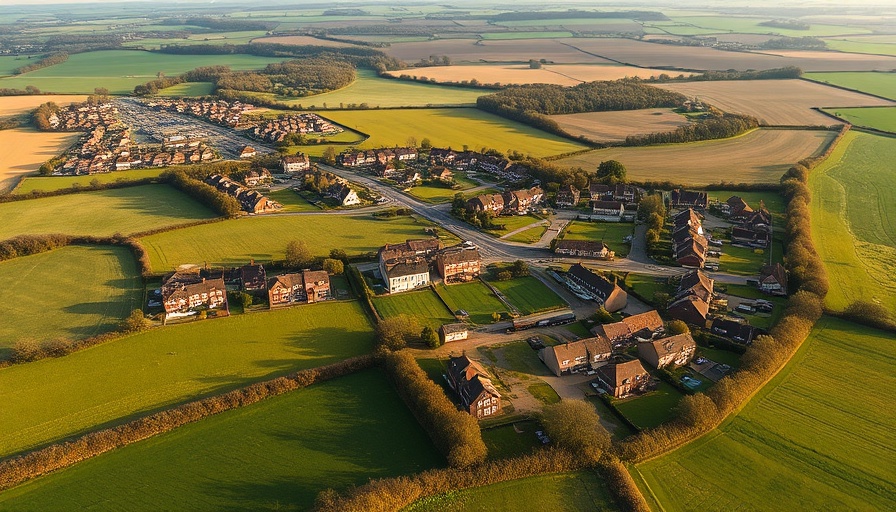
England's Urgent Call for Nature Restoration
As our planet grapples with climate change and biodiversity loss, England’s government is spearheading a groundbreaking initiative: converting nine percent of its farmland into wildlife habitats and forests by 2050. This ambitious plan, announced by Environment Secretary Steve Reed, aims to reverse years of nature depletion in a country often dubbed one of the most nature-depleted in the world.
The Need for Change: A Frightening Reality
The statistics are alarming. In recent years, many beloved British species have faced real threats, inching towards extinction. Not only are wildlife numbers dwindling, but pollution levels in rivers, lakes, and seas have reached unacceptable highs. Reed's proposal emphasizes that leaving vulnerable land to nature, rather than trying to produce food where it may ultimately fail due to flooding or climate impacts, could protect our ecosystems. The pressing nature of these issues makes the government's actions not just necessary, but essential.
Shifting Perceptions: The Farming Paradigm
The land use blueprint suggests significant changes to farming. Traditionally, livestock grazing has been iconic in the agricultural landscape, but such practices may need re-evaluation. Reed noted that reduced meat consumption could guide farmers in adjusting their production methods toward more sustainable practices. The hope is that by providing better information, consumers will make choices that align with ecological well-being, inevitably shifting how food is produced in the future.
Balancing Food Production and Ecological Integrity
Finding a middle ground between food security and environmental health is a delicate balancing act. The government is developing maps that identify the best areas for farming while also pinpointing regions suited for nature conservation. This dual approach aims to ensure that farming becomes more intensive in smaller spaces, leading to better yields without encroaching on environmentally sensitive lands.
Looking Ahead: What This Means for the Future
By 2050, these initiatives could form part of a larger shift in agricultural practices across the UK, reshaping the notion of food security. Farmers are increasingly recognizing the need to adapt their practices in response to climate changes, such as floods and shifts in pest behavior. These evolving strategies highlight how interconnected our food systems and ecological health truly are.
Lessons Learned from the Past: A New Era for Environmental Stewardship
Embracing change often requires us to reflect on past practices. As the nation rallies behind new, informed farming practices, there exists an opportunity to restore ecosystems damaged by prior agricultural methods. Reed's plan is not just about restoration—it's about collaborative stewardship that invites families and communities to participate in ecological recovery.
 Add Row
Add Row  Add
Add 



 Add Row
Add Row  Add
Add 

Write A Comment